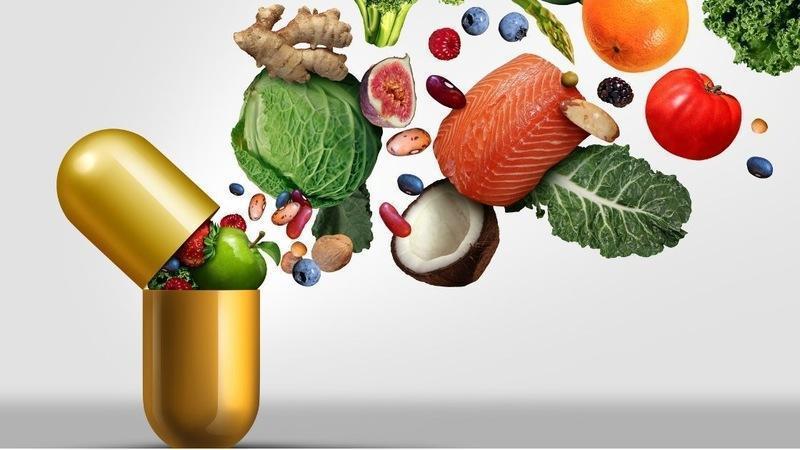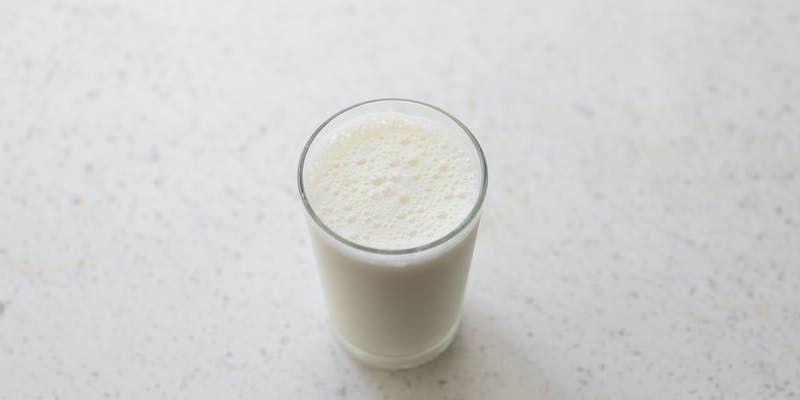Discovering the Power of Magnesium in Your Diet
Feb 05, 2024 By Madison Evans
This article delves into the significance of magnesium in your diet, a vital mineral offering numerous health benefits. It supports muscle function and maintains a healthy heartbeat. In short, plays an indispensable role in various physiological processes. To enhance your overall well-being, we aim to guide you on incorporating foods rich in magnesium.
Understanding the Importance of Magnesium
A mineral, magnesium, orchestrates over 300 enzymatic reactions vital to bodily function. Its influence ranges from bolstering energy production, facilitating muscle function even contributing to DNA synthesis. Despite this pivotal role, a significant number of people fail to meet the daily recommended intake of magnesium. This oversight may pave potential pathways for health complications. To ensure optimal health and well-being, you must fundamentally recognize the significance of incorporating magnesium into your diet.
Magnesium deficiency manifests in various ways, impacting physical and mental health. Symptoms present as muscle cramps, fatigue, and anxiety. Prioritizing magnesium-rich foods in your diet is imperative not just for dietary choices but as a proactive measure towards holistic health.
- Magnesium for Mental Well-being: Adequate magnesium levels can positively impact mental health, reducing the risk of anxiety and stress-related disorders.
- Age and Magnesium Absorption: Aging can affect magnesium absorption, making it essential for older adults to pay closer attention to magnesium-rich food choices.
The Magnesium-Diet Connection
The bedrock of meeting your magnesium needs, ensuring a balanced diet. The spectrum of foods rich in this mineral such as leafy green vegetables, nuts, seeds, and whole grains is expansive. Furthermore, these nutrient-dense selections do more than simply address your magnesium requirements. They contribute an essential medley of vitamins and minerals that fortify overall health.

Understanding the synergy between magnesium and other nutrients further magnifies their benefits. For example, when combined with vitamin D, it enhances calcium absorption. This promotes optimal bone health. Thus, underlining that a diversified diet is not merely about incorporating magnesium alone. It's an overarching strategy toward achieving comprehensive nutritional well-being.
- Synergy of Nutrients: Magnesium works synergistically with vitamins and minerals, such as vitamin D, calcium, and potassium, maximizing their efficacy.
- Cooking Methods Matter: Opt for cooking methods that preserve the magnesium content in foods, such as steaming instead of boiling vegetables.
Magnesium-rich foods to Include
A diverse array of foods awaits to enrich your daily magnesium intake. Leafy greens such as spinach, kale, and Swiss chard provide a tasty yet nutritious foundation for this endeavor. Further contributing are nuts and seeds, almonds, cashews, and pumpkin seeds, they all offer convenient snack options that are both portable and rich in magnesium.
Grains, too, contribute to diversification. Brown rice and quinoa, alongside whole wheat products, not only provide magnesium but also elevate digestive health with their fiber content. The presence of Omega-3 fatty acids and a substantial increase in magnesium is another reason for fish lovers to celebrate when they indulge in fatty varieties such as salmon or mackerel. Finally, beans, lentils, and chickpeas, in addition to their affordability as protein sources, also serve as dependable reservoirs of magnesium.
- Magnesium Bioavailability: Consuming magnesium with vitamin C-rich foods can enhance its absorption.
- Balancing Magnesium Intake: Maintain a balance in magnesium intake, as excessive supplementation can lead to adverse effects.
Creating Magnesium-Boosted Meals
You can embark on a culinary adventure by incorporating magnesium into your meals. Consider, for example, a delectable and nutrient-rich salad. This option blends the freshness of spinach, an excellent source of vitamins A, C, and K, with the crunchiness provided by pumpkin seeds and almonds. In addition to these textural contrasts is quinoa. Not only does it offer its unique texture but also packs an impressive punch in terms of essential minerals such as magnesium.
Opting for another delightful choice, you can combine salmon with leafy greens. It’s a symphony of flavors that also brings numerous health benefits. The smoothie bowl delight, features bananas, kale, and a handful of nuts. This offers an appetizing method for those who prefer to sip their nutrients, particularly infusing magnesium into your diet.
Moreover, as you experiment with magnesium-rich recipes. Not only will your meals diversify but also an appreciation for the versatility of magnesium-enriched foods will flourish. This culinary exploration has the potential to transform a mere dietary necessity into delightful gastronomy.
- Magnesium and Physical Performance: Athletes may benefit from magnesium-rich meals, as magnesium plays a role in muscle function and energy production.
- Colorful Plate, Nutrient Diversity: Aim for a colorful plate. Different hues in fruits and vegetables often signify a variety of nutrients, including magnesium.
Navigating Dietary Challenges for Magnesium Intake
Vegetarianism or specific medical conditions may present dietary challenges that complicate the fulfillment of magnesium requirements. In these cases, it becomes imperative to seek guidance from healthcare professionals or nutritionists. Such experts can offer tailored advice and guarantee essential magnesium intake remains uncompromised despite imposed dietary restrictions.
Exploring alternative dietary strategies, furthermore, opens a door to possibilities. Under professional guidance, you can supplement with magnesium and thus bridge nutritional gaps. We must actively tackle these challenges. It's key for us to understand, that solutions are available, for the maintenance of optimal magnesium levels.

- Vegetarian Sources of Magnesium: Tofu, seeds, and certain grains can be valuable sources of magnesium for individuals following a vegetarian diet.
- Processed Foods and Magnesium: Limiting processed foods is advisable, as they often lack the magnesium found in whole, unprocessed foods.
Conclusion
To conclude, if you prioritize magnesium in your diet, it will effectively promote overall well-being. Incorporate foods rich in magnesium and make mindful dietary choices to guarantee that your body receives essential nutrients. You must remember, that a balanced diet not only supports magnesium intake, it also contributes significantly towards a healthier, more vibrant lifestyle. Start making positive changes today for a magnesium-enriched tomorrow.

Raw Milk Realities: Evaluating the Pros and Cons of Unprocessed Dairy

Understanding and Managing Lower Back Pain

Six Health Benefits of Litchi: Reasons to Include Them in Your Diet

Top 15 Dermatologist-Recommended Products for Acne Scars

Is Sunflower Oil Really Beneficial for Your Health?

Discovering Goldenseal - A Natural Marvel

How to Run Faster and Longer: 4 Effective Running Workouts for Speed and Endurance


